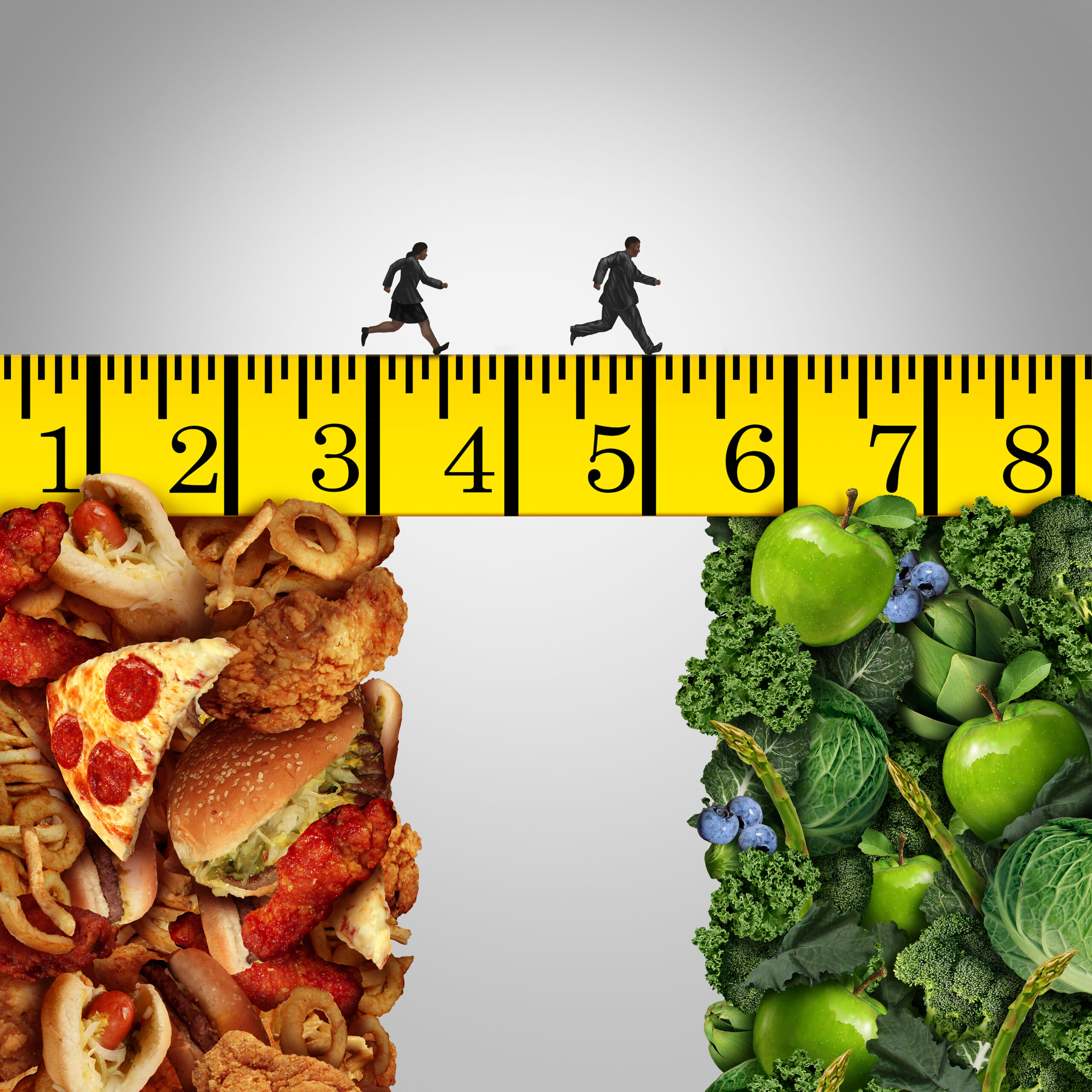New Year, Same Old Story: Understanding Why Weight Loss Resolutions Fail
January 3, 2024
 1032
1032 
Every year as the clock strikes midnight on December 31st, millions of people around the world are filled with a renewed sense of hope and determination.
This is the year, they tell themselves, they will finally achieve their weight loss goals.
New Year’s resolutions become a beacon of hope for a healthier, happier self.
Yet, statistics paint a less optimistic picture, with a significant majority of these resolutions falling by the wayside before the spring blossoms appear.
Understanding why these well-intentioned commitments so often fail is not just about pinpointing shortcomings; it’s about reshaping our approach to health and fitness in a way that fosters long-term success and well-being.

One of the most common traps people fall into when making New Year’s resolutions is setting goals that are either too ambitious or too vague.
It’s easy to get caught up in the enthusiasm of a fresh start and declare, “I will lose 50 pounds this year,” or “I will get in the best shape of my life.”
While these aspirations are commendable, they often lack a realistic framework, setting the stage for early disappointment and abandonment of the resolution.
Overly ambitious goals can be daunting.
When progress doesn’t match expectations, motivation dwindles.
The journey to weight loss is rarely linear, and encountering hurdles is inevitable.
Without achievable milestones, it’s easy to feel like you’re failing, even when you’re making progress.
On the flip side, vague goals provide no clear direction.
Resolutions like “I want to lose weight” or “I want to eat healthier” are intentions without a roadmap.
Without specific targets, it’s challenging to measure progress or feel a sense of accomplishment.
This is where SMART goals come into play – Specific, Measurable, Achievable, Relevant, Time-bound.
A SMART goal for weight loss might look like, “I aim to lose 10 pounds in three months by exercising for 30 minutes each day and eating a balanced diet.”
This approach breaks down the lofty resolution into attainable, trackable steps, providing a clear path forward and the ability to adjust the plan as needed.
Setting realistic and well-structured goals is the first critical step in turning New Year’s resolutions from a fleeting wish into a tangible, achievable plan.
It’s about creating a foundation that encourages persistence and resilience, paving the way for a healthier lifestyle that lasts well beyond the initial excitement of the New Year.

Embarking on a weight loss journey without a clear plan is akin to setting sail without a map.
The initial excitement of a New Year’s resolution might get you off the shore, but without a strategic route, the chances of getting lost in the sea of health and fitness challenges are high.
This lack of planning is a critical reason why many resolutions to lose weight don’t see the light of December 31st of the following year.
Creating a weight loss plan is more than just deciding to eat less and exercise more.
It involves crafting a balanced approach that encompasses diet, physical activity, sleep, and stress management.
A comprehensive plan might include specific dietary changes, a weekly exercise routine, time for adequate rest, and techniques for stress reduction.
This plan should be tailored to individual lifestyles, preferences, and health conditions, ensuring it’s both practical and sustainable.
An effective strategy also recognizes the power of small, incremental changes over grand, sweeping reforms.
For instance, gradually incorporating more fruits and vegetables into your diet or starting with short, manageable workout sessions can lead to more sustainable lifestyle changes than drastic overhauls that are hard to maintain.

Motivation is the fuel for the journey to weight loss, but relying solely on the initial burst of enthusiasm is a common pitfall.
The excitement that comes with a new year can ignite the drive to lose weight, but as everyday life resumes and challenges arise, this initial motivation can quickly flicker out.
The key to sustaining motivation lies in finding deeper, more enduring reasons for weight loss.
It’s about connecting with motivations that go beyond the superficial and transient, such as improving overall health, enhancing mobility, or being able to engage more actively with loved ones.
These intrinsic motivators can provide a steady flame that keeps the journey going, even when the initial excitement wanes.
Building a sustainable motivation arsenal can involve several strategies:
By addressing the planning and motivation aspects of weight loss resolutions, we lay a stronger foundation for success, transforming resolutions from fleeting wishes into achievable, life-enhancing changes.

One of the most significant oversights in many weight loss resolutions is underestimating the importance of comprehensive lifestyle changes.
Losing weight isn’t just about cutting calories or hitting the gym more frequently; it’s about altering your entire lifestyle in a way that supports your health goals.
Successful weight loss and maintenance require a holistic approach that goes beyond diet and exercise.
It involves understanding and modifying various aspects of your life, including:
Neglecting these aspects can lead to a half-baked approach to weight loss, ultimately leading to the failure of the resolution.
Embracing a lifestyle that supports your physical, mental, and emotional well-being is essential for long-term success.

In a world that constantly seeks instant gratification, the allure of quick fixes for weight loss is strong.
Fad diets and extreme exercise regimens often promise rapid results, but these approaches are usually unsustainable and potentially harmful.
Quick-fix solutions, while tempting, can lead to a cycle of yo-yo dieting, nutritional deficiencies, and a negative relationship with food and exercise.
Fad diets often cut out essential nutrients, leading to health issues, while extreme workouts can increase the risk of injury.
The key to successful weight loss lies in a balanced, health-focused approach:
By moving away from the mindset of quick fixes and embracing a balanced approach to health, you can create a sustainable path to weight loss, one that nurtures your body rather than punishing it.

In the quest for weight loss, the focus often lies predominantly on physical aspects such as diet and exercise.
However, ignoring the behavioral and emotional dimensions of eating can be a significant oversight.
These factors are frequently the bedrock upon which our dietary habits are built and maintained.
Behavioral patterns, including habitual snacking, portion sizes, and food choices, play a crucial role in weight management.
Unconscious eating behaviors, often developed over years, can sabotage weight loss efforts.
Recognizing and modifying these habits is essential for long-term success.
Emotional eating is another critical aspect often overlooked.
Many people turn to food for comfort, stress relief, or as a reward, which can lead to overeating and weight gain.
Understanding the emotional triggers of eating is crucial in developing a healthier relationship with food.
It involves paying attention to the taste, texture, and enjoyment of food, as well as the body’s hunger and fullness signals.

Creating a sustainable weight loss plan is about finding a balance between achievable goals and a flexible approach that can withstand the ups and downs of everyday life.
Start with setting realistic, achievable goals.
Instead of aiming for a drastic weight loss, focus on gradual changes that can be maintained over time.
Remember, small successes over time can lead to significant results.
Regularly evaluate your progress and be prepared to adjust your plan as needed.
This might mean setting new goals, trying different activities, or seeking additional support.
By focusing on creating a sustainable and adaptable weight loss plan, you can set the stage for a healthier lifestyle that lasts well beyond the initial enthusiasm of a New Year’s resolution.
As we conclude our exploration of the intricacies behind the common failure of New Year’s weight loss resolutions, it’s clear that the path to successful weight management is multi-faceted.
The journey is not just about the physical transformation but also involves a deep understanding of our behaviors, emotions, and lifestyle.
The key reasons why these resolutions often falter – from setting unrealistic goals and lacking a solid plan, to neglecting the crucial roles of behavioral and emotional aspects – highlight the need for a more comprehensive and mindful approach to weight loss.
The foundation of a successful weight loss journey lies in setting realistic goals that are attainable and sustainable.
Coupled with thorough planning, this approach sets the stage for long-term success.
It’s about breaking free from the allure of quick fixes and instead, embracing a journey that might be slower but is more likely to yield lasting results.
Patience is a virtue, especially in the realm of weight loss. Quick results might be tempting, but the true essence of success lies in gradual and steady progress.
It’s about focusing on overall well-being – balancing physical health with mental and emotional wellness.
Incorporating aspects like mindful eating, stress management, enjoyable physical activities, and acknowledging the role of sleep and social support, creates a holistic approach to weight management.
As we embark on or continue our weight loss journeys, let’s approach them with a renewed perspective.
It’s not just about losing weight for the year ahead but about making lifestyle changes that enhance our overall quality of life.
Let’s move forward with patience, planning, and a focus on comprehensive well-being, turning our New Year’s resolutions into sustainable, life-enhancing habits.

A new study suggests that a widely used sugar substitute found in diet sodas, chewing gum, and low-sugar yogurt may elevate insulin levels. This could increase the long-term risk of heart disease. “Artificial sweeteners have infiltrated nearly all types of food, making it crucial to understand their long-term health effects,” said Yihai Cao, senior author […]

Diet Coke has long been a fan-favorite among soda lovers who want a fizzy, guilt-free alternative to traditional soft drinks. While its zero-calorie, zero-sugar label makes it seem like a healthier option, the reality is far more concerning. Despite its undeniable popularity, Diet Coke’s nutritional profile has raised red flags among health experts for years. […]

New study shows that embracing an anti-inflammatory, plant-forward diet can support cognitive function and help reduce the risk of dementia. What You Eat Shapes Your Brain The food you eat doesn’t just impact your body—it also affects your brain. Research suggests that eating an anti-inflammatory, plant-based diet can help improve memory, focus, and overall brain […]